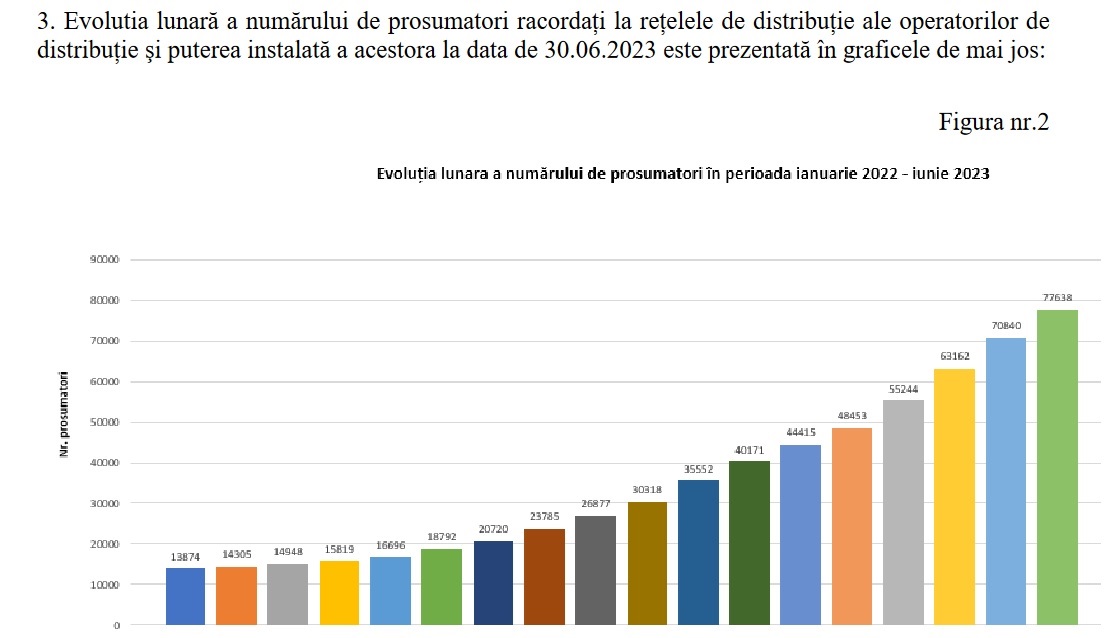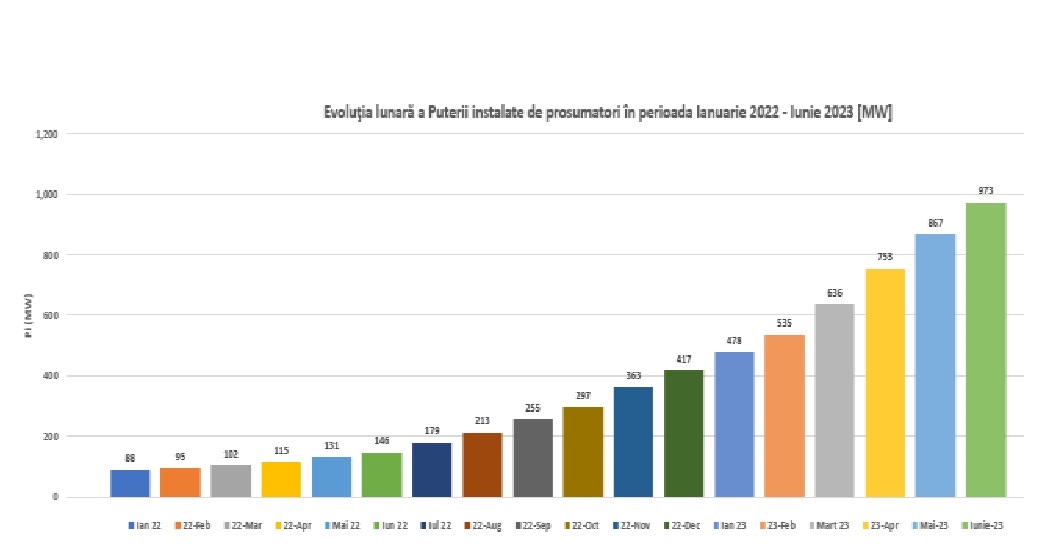
The number of people who install photovoltaics on their homes (prosumers) is growing at a very high rate. But even greater is the rate of increase in installed capacity by consumers, which means that each is installing more and more PV, in many cases beyond consumption requirements. What happens to this excess energy? It goes to the network, and the owner of the photovoltaic installation receives money for each kWh. In essence, owning photovoltaic panels has become a business. But without restrictions in place, that business could turn against consumers as the power grid is so old and worn that it can’t cope, leading to blackouts.
Market operators believe that the authorities should consider measures to slow down the rate of growth of installed capacity. According to representatives of the Federation of Associations of Energy Companies (ACUE), during the installation of panels, restrictions and certain standards should be analyzed, taking into account the consumption history of the beneficiaries. They said the average requirement for a home where the beneficiary also owns an electric car or two would be 6kW, but much more has been set.
According to the National Energy Regulatory Authority (ANRE), about 191 consumers are currently connected every day. Many of them install more panels than they need for consumption. Thus, from behind the laptop, he sells energy, receives money without doing anything.
The power grid is too worn out to handle the large amount of energy that suddenly enters the system
The number of prosumers increased from nearly 14,000 in January 2022 to over 77,600 in June 2023 and is expected to reach around 140,000 by the end of this year. Photo source: ANRE

In 18 months, the installed capacity increased more than 11 times and reached 973 MW in June 2023. Photo source: ANRE

The largest number of beneficiaries is in Ilfov – 6350, followed by Timis – 4598, Dolj – 3223, Arad – 3073, Argesh – 2954
Consumers are encouraged by the assistance provided by the state through the Environmental Fund. Financing is provided in the amount of a maximum of 20,000 lei, subject to a personal contribution of the beneficiary in the amount of 2,000 lei.
But with such growth rates, power outages are possible. For example, if all the residents of a street installed photovoltaic panels, the grid would not be able to handle the large amount of energy entering the system suddenly and simultaneously. This is in conditions in which it is still very old and worn.
HotNews.ro showed it the electricity transmission and distribution infrastructure is so old and dilapidated according to data from the National Energy Regulatory Authority (ANRE) 2022 report, most have exceeded their normal life or reached the limit. Electricity eventually passed through installations even older than 60 years. Distributors claim to invest hundreds of millions of lei annually, but on the ground, the degree of replacement of power lines and transformers is extremely low, even tending to zero in some years.
One solution to these problems would be to invest in energy storage, but this technology is still very expensive. ACUE representatives believe that state support should also be aimed at storage.
What amenities are offered to consumers?
right ANRE dataconsumers can sell electricity produced and transmitted in electric networks to electricity suppliers with whom they have entered into contracts for the supply of electricity.
– Quantitative compensation between electricity produced from renewable sources and delivered to the electricity network by physical and legal consumers who own power plants from renewable sources with an installed capacity of no more than 200 kW per point of consumption
– Financial regulation between electricity produced from renewable sources and delivered to the electricity network by physical and legal consumers who own power plants from renewable sources with an installed capacity of more than 200 kW, but not more than 400 kW per point of consumption
– Natural consumers who generate electricity in power plants with an installed capacity of no more than 400 kW are exempted/exempted from paying all tax obligations related to the amount of electricity produced for their own consumption, as well as the surplus sold to suppliers.
Check out the prosumer guide for all the benefits of prosumers
Read also
- Casa Verde 2023 leak: Voluntari company calls registrants to install solar panels, although data must be confidential: “AFM gave us the numbers” / What the Ministry of the Environment says / AFM reaction
- A wave of complaints about the leak of confidential AFM data at Casa Verde 2023. The petition also reached Čolak / What the government says / Company employee from Jalomica: “Out of 500 numbers, we found about 5”
Source: Hot News
Lori Barajas is an accomplished journalist, known for her insightful and thought-provoking writing on economy. She currently works as a writer at 247 news reel. With a passion for understanding the economy, Lori’s writing delves deep into the financial issues that matter most, providing readers with a unique perspective on current events.